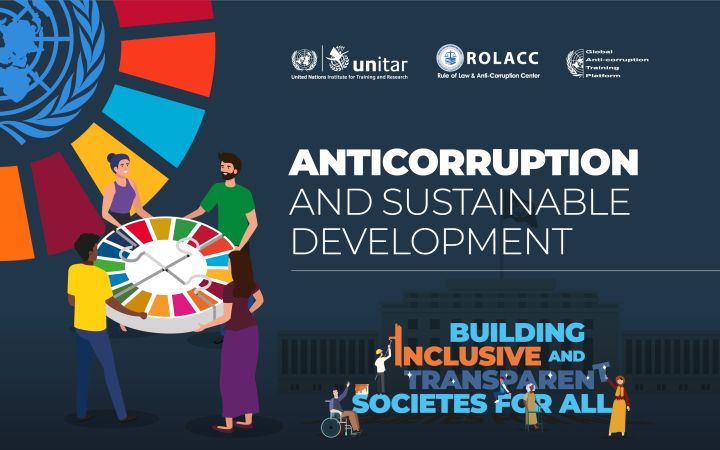13 April 2021, Geneva, Switzerland – In collaboration with the Rule of Law and Anticorruption Center (ROLACC), UNITAR successfully concluded the 2nd iteration of the e-learning course on “Anticorruption and Sustainable Development: Building Inclusive and Transparent Societies for All” offered between 24 February and 7 April 2021.
Over 120 persons from all regions with different backgrounds earned certificates of participation and completion. In total, 220 persons have participated in the first and second iterations of this course, and a total of 882 persons have acceded this e-learning tool.
According to the feedback received, this tool has helped participants to strengthen the competences required for overcoming some of the challenges to combat corruption. In addition to learning its causes and consequences for sustainable development, participants understood better the benefits of its prevention for the enhancement of the rule of law, among other aspects.
The motivation to develop this tool was grounded in the fact that corruption hinders sustainable development in all countries, regardless of their stage of development. Mainstreaming knowledge about this problem pursues the transformation of discriminatory social institutions, laws, cultural norms, and community practices, such as those limiting access to property rights or restricting their access to public space.
In order to tackle its root causes and consequences, as well as to find solutions for prevention, accountability and redress, the impact of mainstreaming knowledge is a powerful resource towards transforming the lives of individuals and societies as a whole.
Therefore, the creation of spaces as this e-learning course represents an opportunity to raise awareness, enhance capabilities, and share good practices towards a culture of learning.
As a contribution to this endeavor, the partners involved have brought together their expertise and practical knowledge to collaboratively developed this course.
It is based on UNITAR’s sound adult learning pedagogical principles and follows the UN Disability-Inclusive approach, which recognizes that combating corruption requires improving accessibility services, information, and participation of persons with disabilities. Hence, this tool includes sign language video and narrative audio.


